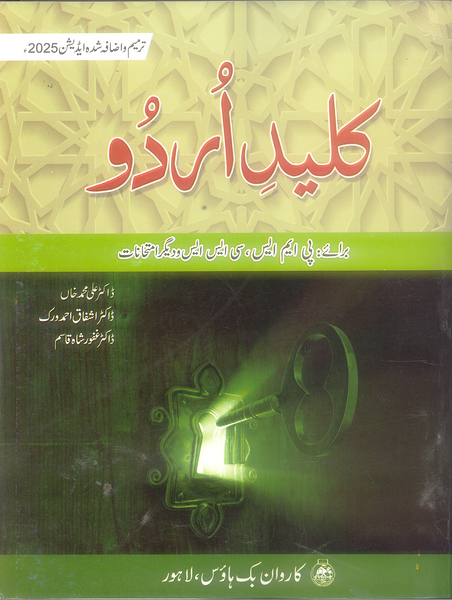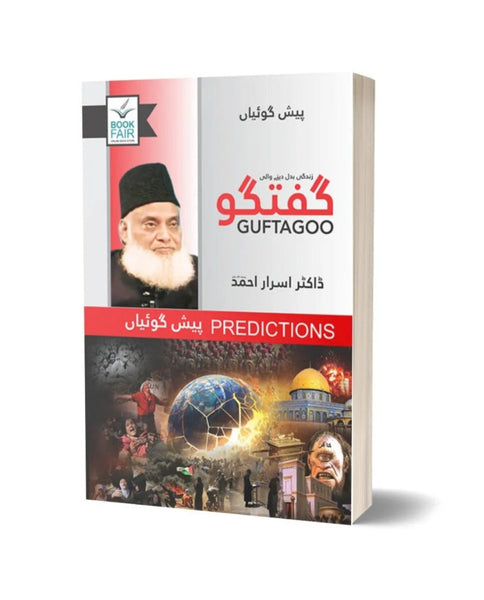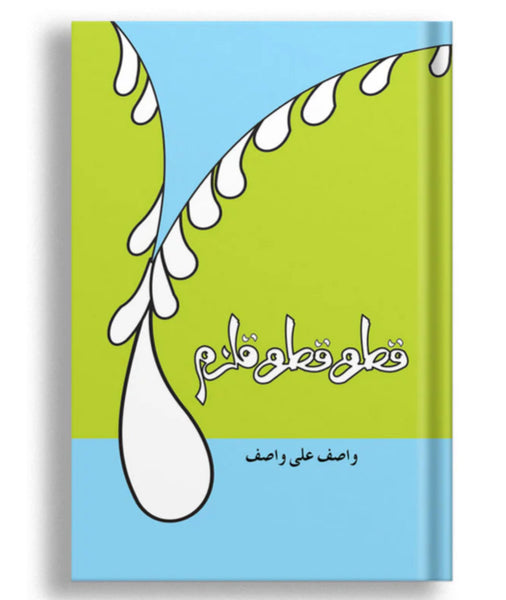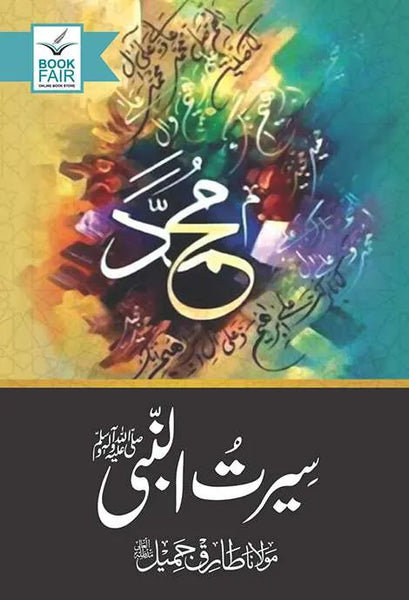Fasana E Ajaib - فسانۂ عجائب by Mirza Rajab Ali Baig
- Publisher: URDU GENERAL BOOKS
- Availability: In Stock
- SKU: 58428
- Number of Pages: 719
Rs.670.00
Rs.1,000.00
Tags: Abdullah Academy , Abdullah Academy (عبداللہ اکیڈمی) , Abdullah Academy Publications , Abdullah Academy Urdu Books , best books , Best Price , Best Selling Books , Classic Urdu Literature , Classic Urdu Stories , Fables and Folklore in Urdu , Fables and Myths in Urdu , Fables of Mirza Rajab Ali Baig Suroor Lakhnoi , Fasana E Ajaib , Literary and Cultural Significance in Urdu , Literary Classics of Urdu , Mirza Rajab Ali Baig , Mirza Rajab Ali Baig Suroor Lakhnoi , Mirza Rajab Ali Baig Suroor Lakhnoi Urdu Book , Mirza Rajab Ali Baig Suroor Lakhnoi's Legacy , Mirza Rajab Ali Baig Suroor Lakhnoi’s Work , Mirza Rajab Ali Baig Suroor’s Influence , Mirza Rajab Ali Beg , ONLINE BOOKS , Online Bookshop , Rasheed Hasan Khan , Rasheed Hasan Khan’s Literary Contribution , Urdu Classical Fiction , Urdu Classical Prose , Urdu Classical Texts , Urdu Fiction and Fantasy , Urdu Fiction Writers , Urdu Language and Fiction Writing , Urdu Language and Literature , Urdu Language and Narrative Style , Urdu Literary Art , Urdu Literary Stories , Urdu Narrative Tradition , Urdu Prose and Poetry , فسانۂ عجائب , فسانۂ عجائب کی جمالیات , فسانۂ عجائب کی کہانیاں
Fasana E Ajaib - فسانۂ عجائب by Mirza Rajab Ali Baig
Author: Mirza Rajab Ali Baig Suroor Lakhnoi, Rasheed Hasan Khan
Publisher: Abdullah Academy
Fasana-e-Ajaib (فسانۂ عجائب) by Mirza Rajab Ali Baig Suroor Lakhnoi, translated by Rasheed Hasan Khan, is a prominent work in the realm of Urdu literature, blending elements of mysticism, fantasy, and moral storytelling. Written in the early 19th century, this book is a collection of fascinating, imaginative tales that engage the reader with their extraordinary plots and remarkable characters. Mirza Rajab Ali Baig, known for his eloquent and creative prose, brings forth a narrative that explores the mysteries of human existence, the supernatural, and the complexities of life in a whimsical yet thought-provoking manner. The stories are rich in allegory, where the fantastical elements reflect deeper truths about human nature, ethics, and spirituality. Rasheed Hasan Khan's translation preserves the beauty and elegance of the original text, allowing a new generation of readers to delve into this literary treasure. Fasana-e-Ajaib offers a unique perspective on life through the lens of fantasy, providing both entertainment and profound insights into the human condition.
Keypoints:
-
Blend of Fantasy and Reality
The book features fantastical stories that weave between reality and the supernatural, creating a captivating and imaginative narrative. -
Moral and Philosophical Themes
While fantastical in nature, the stories in Fasana-e-Ajaib contain deep philosophical reflections and moral lessons that question human behavior and spiritual understanding. -
Cultural and Literary Impact
This work holds significant importance in the history of Urdu literature, being one of the early examples of fantasy and allegorical storytelling in the language. -
Innovative Narrative Style
Mirza Rajab Ali Baig’s narrative style in Fasana-e-Ajaib is marked by rich descriptions, clever wordplay, and a unique ability to blend the fantastical with the ordinary, making it both entertaining and thought-provoking. -
The Influence of Sufism
The book is deeply influenced by Sufi thought and mysticism, with many stories highlighting spiritual journeys, the search for enlightenment, and the human connection with the divine. -
Historical Context
Written in the early 19th century, the book reflects the social, cultural, and spiritual atmosphere of the time, providing a glimpse into the world of Urdu literature during the Mughal and early colonial period. -
Characterization and Plot Development
The characters in Fasana-e-Ajaib are vibrant and multifaceted, with each tale offering new and unique personalities that add depth to the overall narrative. -
Use of Allegory and Symbolism
Much of the book’s power lies in its use of allegory and symbolism, where the fantastical elements of the story serve as metaphors for real-life struggles and moral dilemmas. -
Influence on Urdu Fantasy Literature
Fasana-e-Ajaib is regarded as one of the pioneering works in Urdu fantasy literature, inspiring subsequent generations of writers who sought to explore similar themes of the extraordinary. -
Legacy and Continuity
Even today, Fasana-e-Ajaib continues to be an important part of Urdu literature, studied for its imaginative depth and its role in shaping the genre of fantasy and allegorical fiction.
Conclusion:
Fasana-e-Ajaib by Mirza Rajab Ali Baig Suroor Lakhnoi is a remarkable literary work that combines the fantastical with profound philosophical insights. Through allegorical stories, the book explores the intricacies of human life, spirituality, and morality, offering both entertainment and reflection. Rasheed Hasan Khan’s translation ensures that the richness of the original work is accessible to modern readers, allowing this literary masterpiece to continue to inspire and provoke thought. The blend of mysticism, fantasy, and social commentary makes Fasana-e-Ajaib a unique and valuable addition to the Urdu literary canon.


























